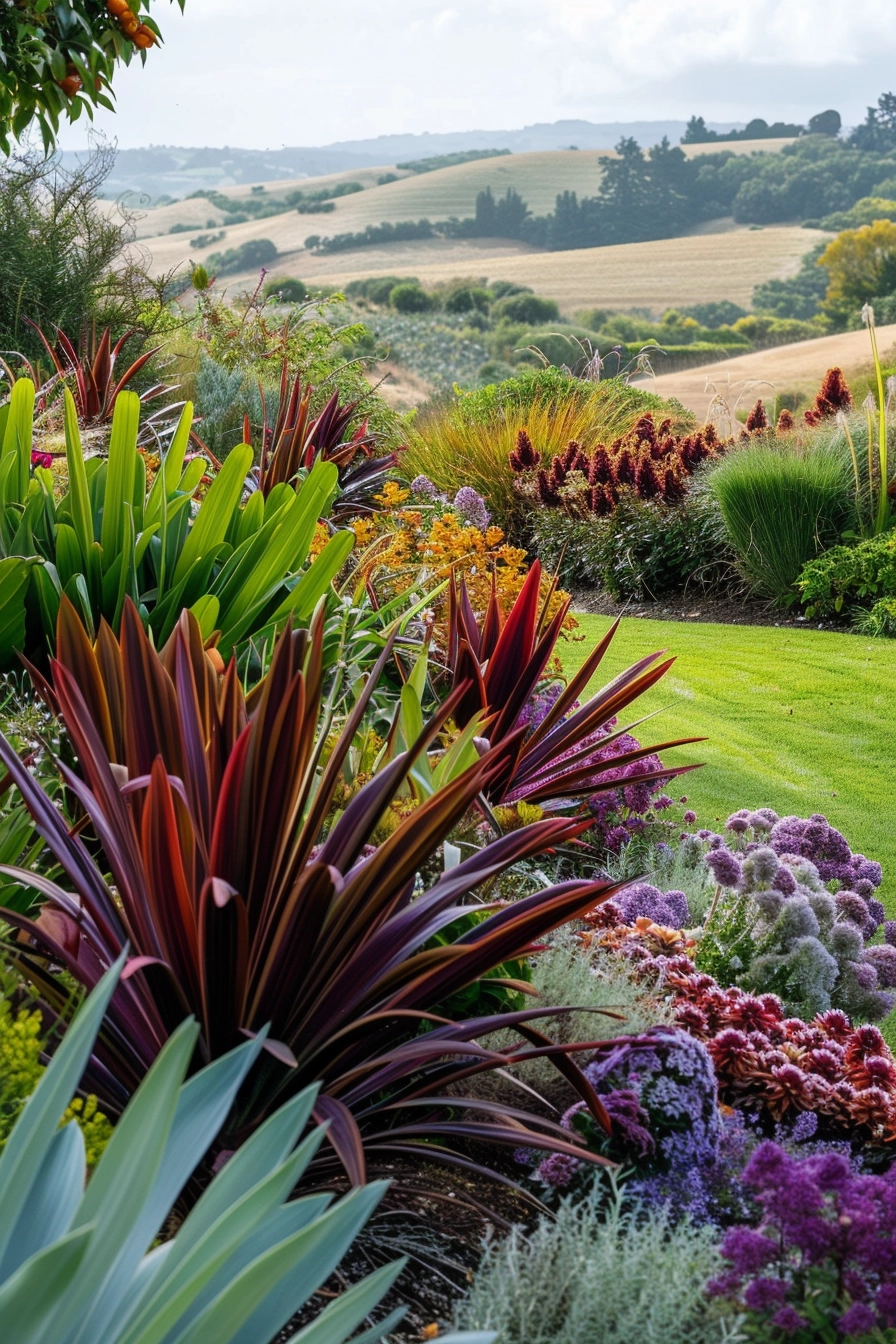Building a sustainable and eco-friendly backyard is not only beneficial for the environment but also provides you with a beautiful and low-maintenance outdoor space. By incorporating eco-friendly design and maintenance practices, you can create a yard that is both environmentally conscious and visually appealing. Let’s explore some tips and ideas for building a sustainable and eco-friendly backyard.
Key Takeaways:
- Choose native plants for a low-maintenance and eco-friendly landscape.
- Using organic mulch and ground cover plants can help conserve water and reduce maintenance.
- Implement water conservation strategies, such as rainwater harvesting, to reduce outdoor water usage.
- Consider natural pest control methods and organic fertilizers for an eco-friendly approach to garden care.
- Embrace sustainable outdoor living practices to create a nature-friendly yard that benefits both you and the environment.
Choose Native Plants
One of the most important steps in building a sustainable backyard is to choose native plants for your landscaping. Native plants are naturally adapted to the local climate and require less maintenance, as they are resistant to local pests and diseases.
When you select native plants for your yard, you not only create a beautiful and vibrant landscape but also contribute to the preservation of local wildlife. Native plants provide essential habitats for birds, butterflies, and other wildlife species, supporting the biodiversity of your area.
Incorporating native plants into your yard offers numerous benefits. First, they require less water, as they are adapted to the local weather patterns. This makes them ideal for eco-friendly landscaping, as you can conserve water and reduce overall water consumption. Additionally, native plants have evolved alongside local wildlife, providing a crucial food source and shelter. By planting native species, you invite a diverse array of birds, bees, and other pollinators to your yard, enhancing the ecological balance of your surroundings.
Beyond their ecological advantages, native plants also offer aesthetic benefits. With their unique colors, textures, and forms, they can create stunning garden displays and enhance the natural beauty of your outdoor space. Whether you’re looking for vibrant wildflowers, elegant grasses, or majestic trees, there are countless native plant options to choose from. By selecting species that are suited to your specific region, you can ensure a low-maintenance and resilient landscape that thrives with minimal effort.

Mulch and Ground Cover
When it comes to building a sustainable and eco-friendly backyard, using organic mulch and exploring ground cover alternatives are two effective strategies for conserving water, controlling weeds, and reducing the maintenance needs of your lawn.
Organic mulch, such as wood chips or shredded bark, serves multiple purposes in your garden beds and around trees. Firstly, it helps to retain soil moisture by reducing evaporation, ultimately conserving water in your backyard. By maintaining a consistent level of moisture, organic mulch also provides a healthy environment for plant roots to thrive. Additionally, it acts as a natural weed suppressant, minimizing weed growth and reducing the need for chemical herbicides.
Moreover, organic mulch slowly breaks down over time, enriching the soil with nutrients as it decomposes. This improves the overall fertility and health of your garden, eliminating the need for synthetic fertilizers. The use of organic mulch not only benefits your plants but also supports the ecosystem by promoting beneficial soil organisms.
If you’re looking to further reduce water consumption and maintenance requirements, consider replacing traditional grass lawns with ground cover plants like clover or moss. These alternatives offer several advantages. Firstly, they require less water and have lower irrigation needs compared to grass lawns. Secondly, ground cover plants naturally suppress weed growth, reducing the need for herbicides. Additionally, they provide a lush and attractive green cover that requires minimal mowing or trimming, resulting in a low-maintenance lawn. Lastly, ground cover plants can enhance biodiversity by attracting pollinators and beneficial insects to your backyard.
By incorporating organic mulch and exploring ground cover alternatives in your backyard, you can not only conserve water and control weeds but also create a low-maintenance and eco-friendly outdoor space. These sustainable practices align with the principles of water conservation, weed control, and grass alternatives, contributing to a greener and more nature-friendly yard.

Water Conservation and Pest Control
Implementing water conservation strategies in your backyard is not only environmentally responsible but can also help you save on outdoor water usage. One effective method of conserving water is through rainwater harvesting. By installing rain barrels or cisterns, you can collect and store rainwater, which can then be used to irrigate your plants and gardens.
Rain gardens are another fantastic addition to any eco-friendly backyard. These gardens are designed to capture and filter stormwater runoff, reducing erosion and the risk of water pollution. They also serve as beautiful and visually appealing features, adding to the overall aesthetic of your outdoor space.
When it comes to pest control, opting for natural and eco-friendly methods is both effective and better for the environment. Using organic fertilizers helps nourish your plants without introducing harmful chemicals into the ecosystem. Additionally, natural pest control techniques, such as companion planting or introducing beneficial insects, can help keep pests at bay without relying on synthetic pesticides. This promotes a healthier and more balanced ecosystem in your backyard.


